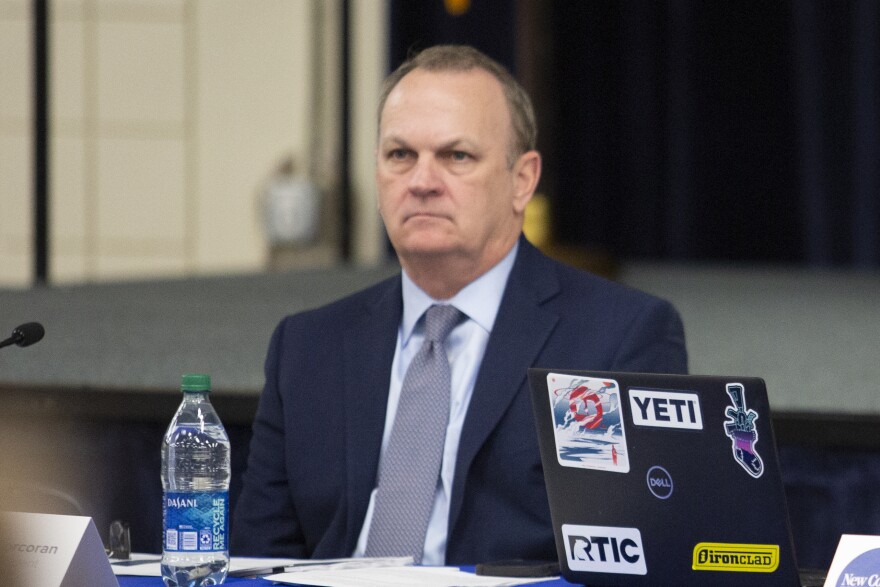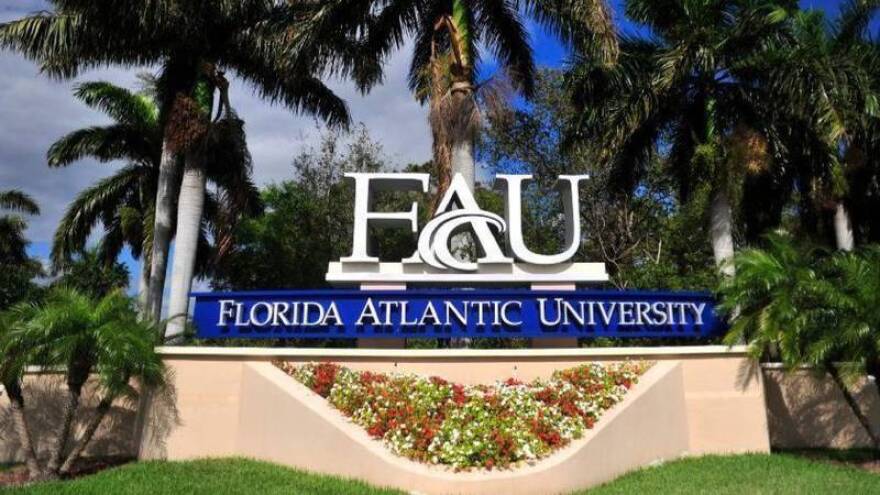WLRN 91.3 FM | By Kate Payne
April 6, 2023 at 9:30 AM EDT
Florida Atlantic University hasn’t yet ironed out the job description for the next president of the university. But Gov. Ron DeSantis’ office has reportedly already approached Republican Rep. Randy Fine for the job, despite him not having experience as an academic or administrator in higher education.
Some professors at the university say they see this as political influence that could jeopardize the integrity of the search.Your generous support ensures that this trusted public news service is accessible to all, no matter what. Please donate today.
“I don’t know how possible it is to be able to fight back against this,” said Robert Lubarsky, amath instructor at FAU. “But this is the thing that I would want to see the most — to have a president who’s committed to the university and the university community … [and] if need be, in opposition to and in defiance of the governor and the politicians.”
Fine is a member of the House Education & Employment Committee, a self-described “conservative firebrand”, and a cosponsor of the Parental Rights In Education law, dubbed by critics as the “Don’t Say Gay” law. He’s pledged to fight on behalf of “what has always made America great” and to attack “wokeism” — an umbrella term used to criticize a broad range of liberal policies, including teachings about the legacy of racial injustice in the U.S.
According to Florida Today, Fine has also called a local school board member a “whore” and was investigated by the Florida Department of Law Enforcement for allegations of cyberintimidation and stalking, though no charges were filed. According to the South Florida Sun Sentinel, Fine once floated the idea of a “5- and 10-year potential shutdown” of the University of Central Florida.

Fine’s office declined a request for comment on this story.
Reelected in 2022 by a nearly 20-point margin, DeSantis has made restructuring education a major focus. His former education commissioner Richard Corcoran was recently named Interim President of New College of Florida, in what students and faculty have called a “hostile takeover”.
According to the the Tampa Bay Times, Corcoran is now paid a base salary of $699,000 — more than double what his predecessor Patricia Okker made. Base salaries for other presidents in Florida’s state university system range from $400,000 to $1 million.
In response to a request for comment on this story, the governor’s office provided a statement from Communications Director Taryn Fenske, who said “Rep. Fine has been a leader on education issues and we think he’d be a good candidate for the role.”
Search consultant would consider resigning if politics overpowers process
With its flagship campus in Boca Raton and a student body of more than 30,000, FAU prides itself on being one of the most diverse universities in the nation, for being a place where Hispanic, Black, first generation and Pell-eligible students can succeed and catapult into the middle class.
The school recently gained national recognition when its men’s basketball team advanced to the Final Four for the first time in the program’s history.
Professors and alumni say they want a leader who can leverage the strides the school has made and take it to the next level.
“The next chapter has to be thinking in those terms about how we continue that trajectory,” said Karen Leader, an FAU art history professor.
“Instead we are being forced to attend to some short-term and frankly craven political aims,” Leader added, “seen clearly in the floating of a name of someone who is clearly unsuited for the job. And clearly ideological players who want to take hold of something that is very exciting for all of us and turn it in another direction that will negatively affect alumni, parents, current students, potential students, the Florida economy.”
In a series of public meetings this week, some faculty members questioned how the integrity and independence of the search will be maintained, when the governor’s administration has already made its preference known even before the search has formally started.
“You understand our anxiety,” said one FAU professor who asked not to be named because they fear retaliation, “when all this information that we are receiving [is] that we are very likely to get a South Florida politician as our next president.”
A spokesperson for FAU did not respond to a request for comment for this story.
Sally Mason of the firm AGB Search has been hired to help guide the process, along with other consultants. Mason — a former president of the University of Iowa — acknowledged what she called the “interesting politics” in Florida, but said she’s hopeful the news about Fine won’t dissuade other qualified candidates from applying.
“Whether you believe it or not, there are lots of people out there who are interested in presidencies and interested in taking on grand challenges,” Mason said. “Maybe this is a grand challenge. It likely will be.”
When asked by a faculty member if she would resign if she thought the process was overtaken by political pressure, Mason said she would consider it.
“Unless I’m convinced that they don’t care at all about those issues and only care about the politics of the state, I’m committed to trying to do the best that we all can for your institution,” Mason said. “We want to be able to present to them a wide open roster. If we thought at any point in time that we wouldn’t be able to do that, we would indeed step back from the search.”

What comes next
FAU’s presidential search committee will work with the firm AGB Search to recruit applicants for the position, vet them and recommend a slate of candidates to FAU’s Board of Trustees, under a standard statewide process. The BOT is largely made up of gubernatorial appointees and members appointed by the state’s Board of Governors, which is itself largely appointed by the governor.
Ultimately, the BOT will select a group of finalists who will be invited for on-campus forums and interviews. The trustees’ chosen nominee is subject to confirmation by the BOG.
Under a state law passed in 2022, much of the process will happen behind closed doors. Only the identities of finalists are able to be publicly released; the identities of all other applicants will be kept confidential and exempt from public records.
In recent searches at the University of Florida and Florida International University, only one finalist emerged; it’s not publicly known who else applied for those top jobs.
Despite some faculty members’ concerns about the potential for political pressure, Mason told them not to “throw in the towel” on the search.
“We’re going to maintain integrity. If what happens beyond us, beyond the search committee, beyond the search firm, is not that … you can at least stand up proudly and say we did our best. We did everything we could,” Mason said. “If the governor wants to ignore that, if the Board of Governors wants to ignore that, if the Board of Trustees wants to ignore that, there’s not much we can do.”
FAU’s presidential search firm is scheduled to hold a public meeting Tuesday April 11 to review the presidential profile — the formal job description. That document must then be approved by the Board of Trustees.
